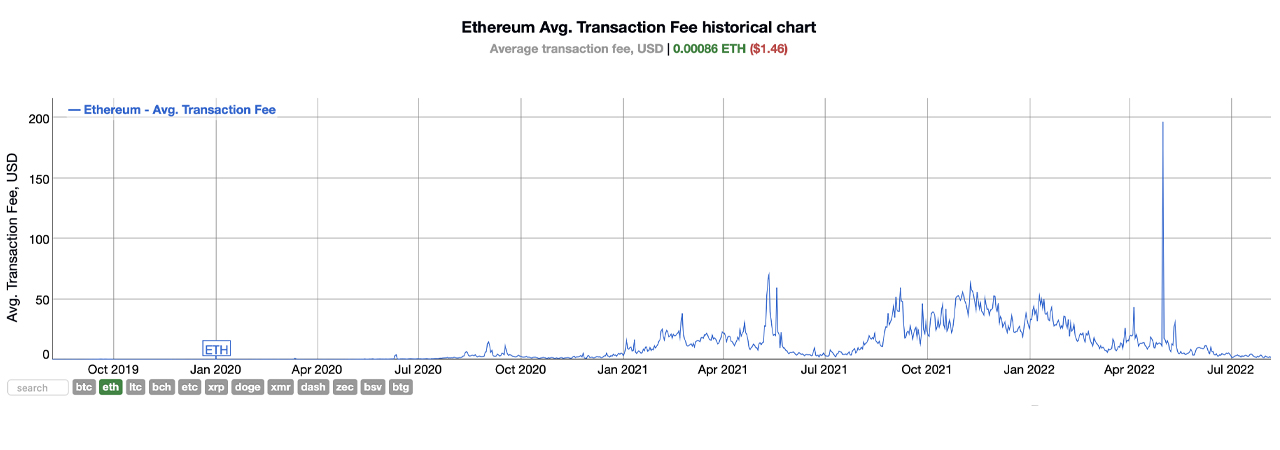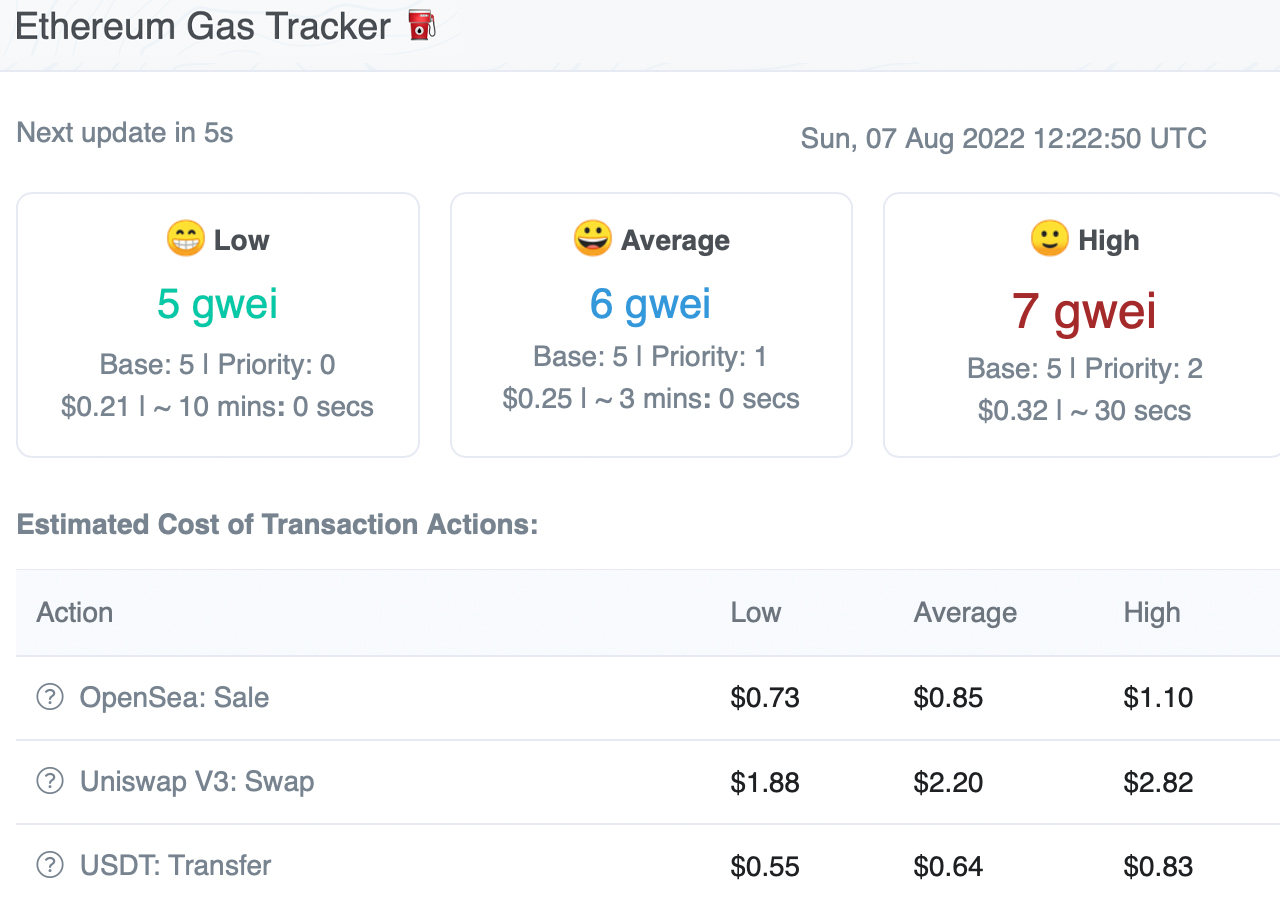In 43 days, the Ethereum network could finally see a full transition from proof-of-work (PoW) to proof-of-stake (PoS) via The Merge. Meanwhile, during the last 38 days, Ethereum’s layer one (L1) onchain transaction fees have dropped below the $5 mark and tumbled even lower by the end of July. At the time of writing, the average Ethereum network fee is 0.00086 ether or $1.46 per transfer. Median-sized fees are even less, as statistics show transfer fees have been as low as $0.21 to $0.576 per transaction on Sunday morning (EST).
Ethereum Gas Costs Remain at the Lowest Rates Since December 2020, Ether Transfers Top Opensea’s Burn Rate
For quite some time now, Ethereum data fees to transact on the network have been much lower than usual. In fact, today’s average Ethereum network fee is 0.00086 ether or $1.46 per transfer, a low not seen since December 12, 2020.
Essentially, a gas fee is the quantity of ethereum (ETH) required to transfer data onchain, and the fee to simply push ETH is cheaper than the fees tied to transferring an ERC20 token and interacting with a smart contract.

While the average Ethereum network fee is around $1.46 per transfer today, statistics from etherscan.io’s Gas Tracker indicate that gas fees are between 5 to 6 qwei per transfer or $0.21 to $0.32. The Gas Tracker also shows that the cost to execute an Opensea sale can be between $0.73 to $1.10 per transaction, and decentralized exchange (dex) swaps can cost anywhere between $1.88 to $2.82 per transfer.

To push an ERC20 token like USDT or USDC, the transfer cost is estimated to be around $0.55 to $0.83 per transfer on Sunday morning (EST). Data from bitinfocharts.com shows Sunday’s median-sized fees are 0.00034 ether or $0.576 per transaction. Ethereum transfers are a large contributor to the burning of ETH that stems from Ethereum Improvement Proposal (EIP) 1559.
Opensea was once the largest contributor to the 2,573,837 ethereum (ETH) destroyed so far. However, Ethereum transfers are now the biggest contributors to destroying ether with 232,233 ETH burned to date. As ETH’s supply growth jumps by 5.5 million per year, EIP-1559’s deflationary burn mechanism destroys around 0.2 million ether annually.
Since EIP-1559’s inception, traditional ethereum transactions equaled approximately 156,422,214 transactions and roughly 649.79 ether was destroyed during the last 24 hours from ETH transactions and a variety of other types of data transfers.
L2 Fees Offer Cheaper Ethereum Transfer Alternatives
As far as layer two (L2) transactions are concerned, fees via L2 are much cheaper than L1. At the time of writing, Loopring and Zksync offer the cheapest L2 alternatives. Loopring fees are $0.01 per transaction, while Zksync fees are also a U.S. penny in value per transaction. The cost to swap tokens using these L2 platforms can cost a touch more, as the estimated Zksync swap fee is $0.02 today, but Loopring swapping fees are upwards of $0.42 per transaction.

Optimism L2 gas costs are roughly $0.03 per transaction, while Arbitrum One can cost $0.05 per transfer. To swap via Optimism’s platform, estimates show it could cost a user $0.05, while Arbitrum swaps are estimated to be around $0.08 today. On August 7, L2 fees are also cheaper on Metis, Boba, and Aztec networks and Polygon Hermez as well.
What do you think about Ethereum network fees remaining at the lowest gas rates since December 2020? Let us know your thoughts about this subject in the comments section below.
Image Credits: Shutterstock, Pixabay, Wiki Commons
Disclaimer: This article is for informational purposes only. It is not a direct offer or solicitation of an offer to buy or sell, or a recommendation or endorsement of any products, services, or companies. Bitcoin.com does not provide investment, tax, legal, or accounting advice. Neither the company nor the author is responsible, directly or indirectly, for any damage or loss caused or alleged to be caused by or in connection with the use of or reliance on any content, goods or services mentioned in this article.
Credit: Source link












































